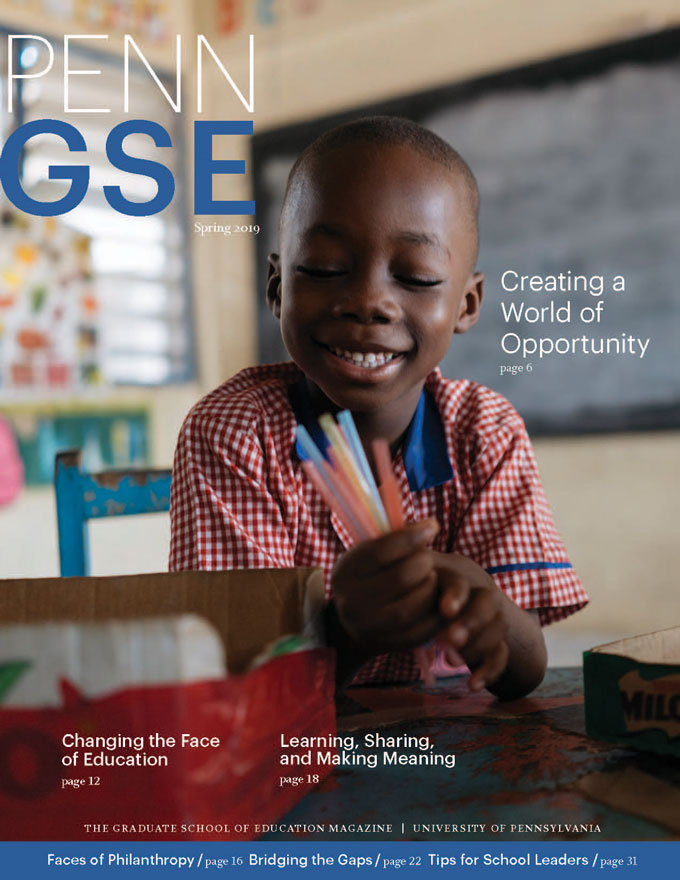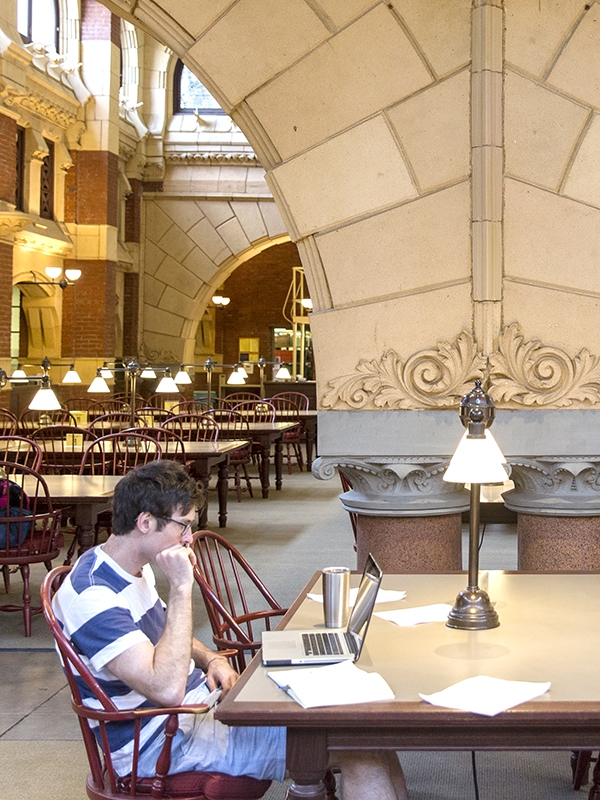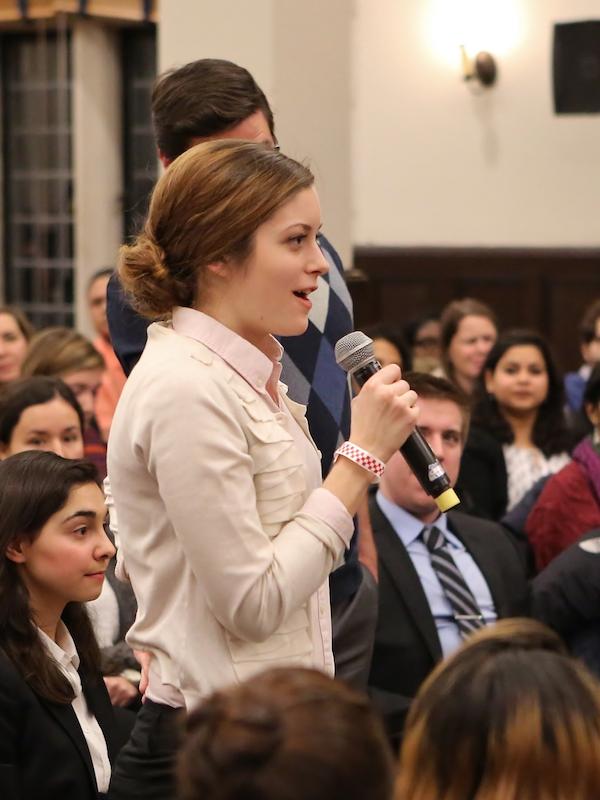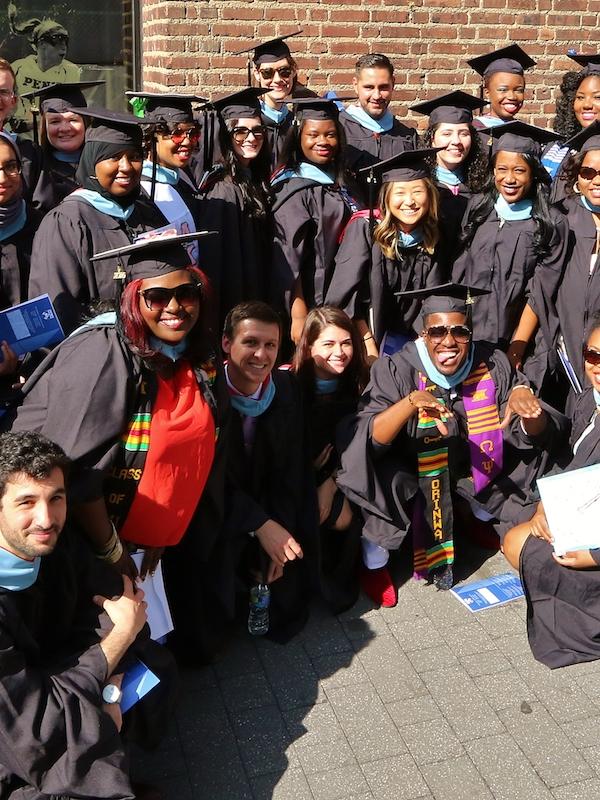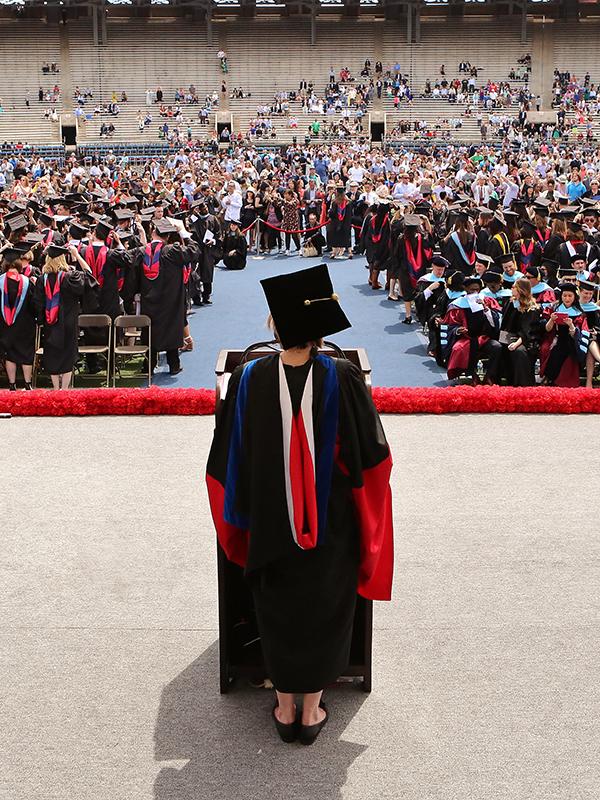Learning, Sharing, and Making Meaning: Philadelphia Writing Project Advances Writing Across the City
interview by Juliana Rosati
As Philadelphia’s most prominent teacher network since 1986, the Philadelphia Writing Project (PhilWP) has built an enduring legacy of supporting teachers in Philadelphia schools as they use writing to advance learning. In 2017-2018 alone, PhilWP teachers worked with more than 18,000 students in individual classrooms and provided opportunities for young people in an array of out-of-school youth programs.
Penn GSE Professor of Practice Diane Waff, C’76, GRD’07, is director of PhilWP, which is located at Penn GSE as one of 180 sites of the National Writing Project (NWP). We sat down with Dr. Waff and NWP Senior Associate Judy Buchanan, who retired as NWP deputy director in 2018 and formerly served as PhilWP director. Our conversation explored how PhilWP’s longtime work is enriching K–12 teachers’ and students’ learning and how a new initiative by PhilWP is cultivating Philadelphia’s youngest writers.
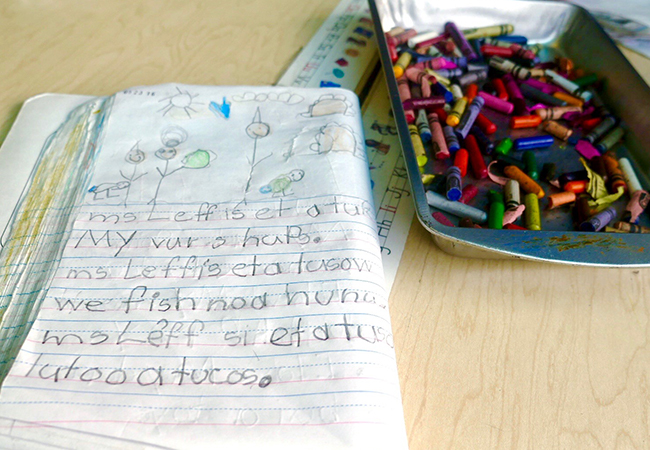
Q: PhilWP’s core work has built a growing network of more than eight hundred teacher consultants in the Greater Philadelphia region who enhance the teaching of writing. How do teachers join the network, and why is its work important?
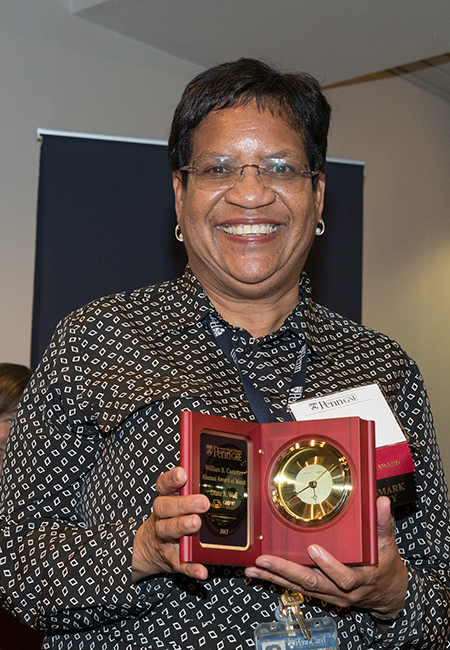
Diane Waff: Teachers join our network and become PhilWP teacher consultants by completing our Invitational Summer Institute on Writing and Literacy, a two-week professional development program for pre-K through 12 teachers across subject areas. Our participants see themselves as people who can take up leadership roles. That can mean sharing their teaching practice with the teacher next door or more broadly within their school context. We ask Summer Institute applicants to provide a letter of commitment from their principal, stating that the principal will recognize the knowledge and expertise of the participant and help create opportunities within the school for the teacher to share their practice with other teachers. By reflecting upon the process of teaching and learning at the Summer Institute and bringing their insights back to their school communities, our teacher consultants have a far-reaching impact.
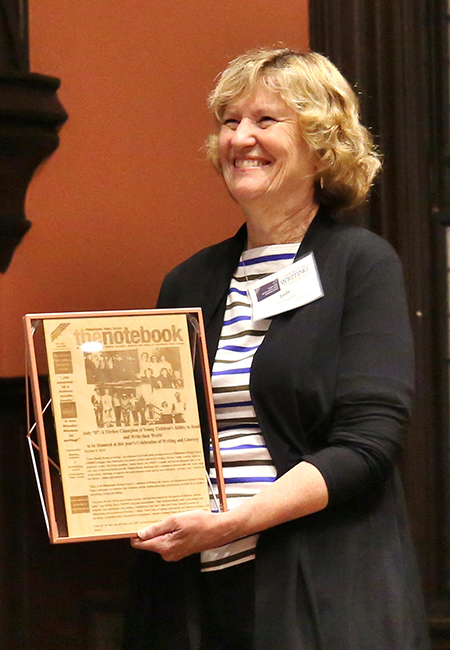
Judy Buchanan: PhilWP and the other NWP sites across the country are expanding K–12 students’ access to high-quality writing instruction. One of the dilemmas we face in American education is that writing has often been neglected as a tool for learning and is more frequently used as assessment—give me a short answer to this question or write to this prompt. Students need the opportunity to improve their writing skills over time through a regular process of writing for multiple purposes, receiving feedback, revising, and publishing their work. At the university level, one of the areas in which students struggle the most is writing, and one of the biggest divisions is between young people who have had high-quality K–12 writing instruction and those who haven’t. Students become more proficient at writing when they experience it from their earliest days as a way of making meaning through stories, poems, essays, and critical analysis.
Q: What ideas at the heart of PhilWP set its approach apart?
DW: At the Summer Institute, teachers come to think critically about how they can use writing to support learning in their school context. It really is an inquiry-driven institute—a set of questions informs the work each day. Whether you’re teaching math or history or science, you’re there to engage with your peers to explore how you can use writing to make your students’ thinking visible. One of the things that Penn GSE Professor Emerita Susan Lytle, GR’82, the founding director of PhilWP, used to say is that when children write, they’re writing about something. We want you to notice what your students are writing about. How are you using writing to advance learning? How are you using it to give your students a creative voice or a way to make a difference in their community? We also look at culturally responsive teaching—how can your teaching benefit from awareness of your students’ cultural backgrounds?
Q: How does PhilWP’s approach connect to the aims of the National Writing Project?
JB: Each NWP site across the country has teacher leadership institutes. They are anchored on university campuses and are locally flavored, and all are grounded in a real opportunity to think critically about your own work in community with colleagues who are thinking about theirs. So much of teachers’ professional lives outside of this kind of learning has been about being told what to do. At NWP institutes, you’re reading and being informed by the larger knowledge that’s out there. But you’re also applying your own knowledge and expertise. And you’re actually writing and sharing your work with your peers. Engaging in the practice of writing really helps you to teach writing more effectively, and that’s hard to find time for in today’s world.
“One of the dilemmas we face in American education is that writing has often been neglected as a tool for learning and is more frequently used as assessment.”
Q: How does PhilWP engage teacher consultants beyond their work in their schools?
DW: Teacher consultants can participate in our advanced institutes, where they document their work throughout the year as they design writing experiences for their students. PhilWP creates various platforms for those participants to share their work. These include the Penn Ethnography Forum, the PhilWP Celebration of Writing and Literacy, and local and national conferences such as the National Council of Teachers of English. Teacher consultants also regularly participate in PhilWP’s other initiatives as teacher mentors and coaches.
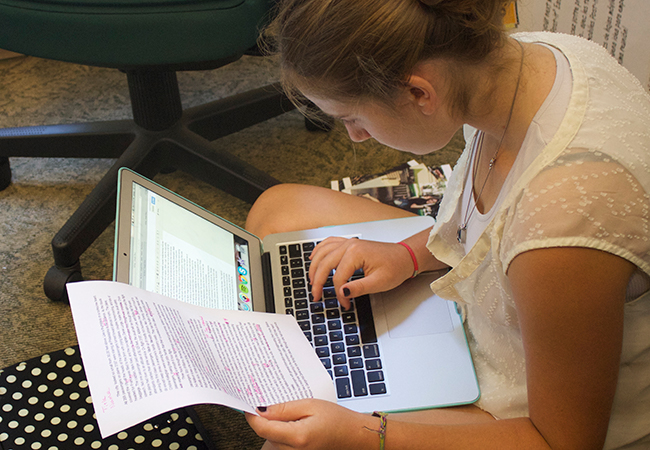
Q: One of PhilWP’s other initiatives is bringing an approach called Kid Writing to kindergarten and first grade in four Philadelphia schools. What is Kid Writing, and how are you helping schools to adopt it?
JB: Kid Writing is a research-based approach to get children started in a strong and joyful way to become readers and writers. It integrates rigorous phonics instruction from the very beginning. First, children draw their story. Then they do “kid writing,” writing as many of the letters and words as they can. The next step is “adult writing,” where teachers help children read their stories aloud and write the full words, emphasizing the sounds. Finally, children share their writing with the class and the teacher uses this work to discuss a skill the students need to learn.
Kid Writing was developed by Eileen Feldgus, GRD’95, who was a PhilWP teacher consultant. Her dissertation chair at Penn GSE was Marilyn Cochran-Smith, GR’82. Through her studies, Dr. Feldgus came to understand that the research-based evidence on early reading and writing suggested a different approach than the one she had taken as a kindergarten teacher. This led her to publish Kid Writing: A Systematic Approach to Phonics, Journals, and Writing Workshop (Wright Group Publishing, 1999) with another PhilWP teacher consultant, Isabell Cardonick. They wrote a newly revised edition, Kid Writing in the 21st Century (Hammeray, 2017), in collaboration with Dr. Richard Gentry. Dr. Feldgus does professional development with colleagues across the country, and Kid Writing has been adopted by many schools and districts.
DW: Kid Writing developed in Philadelphia, and our hope is that we will be able to share this approach to working with young children on a broader scale in the city. We began by introducing it to teachers at Frances E. Willard School a few years ago with funding from the National Writing Project. When we could show that students were writing more, having conversations about their writing, and producing journals that showed progression across the year, the William Penn Foundation funded us to develop that program further, and provided funding for the Philip H. Sheridan School to participate.
Based on the percentage of students improving at both schools, William Penn awarded us a four-year grant to work with multiple schools. Part of what has made us successful is bringing in a team of retired teachers who are PhilWP teacher consultants to provide coaching and mentoring to current teachers as they adopt Kid Writing. We’ve expanded our work to Solomon Solis-Cohen School and Gilbert Spruance School, and we’ll soon add a fifth school. We also welcomed teachers from across the country to Penn GSE in June for a National Writing Project–sponsored institute on Kid Writing featuring Dr. Feldgus and current PhilWP teachers.
“Kid Writing developed in Philadelphia, and our hope is that we will be able to share this approach to working with young children on a broader scale in the city.”
Q: Diane, you work with students in Penn GSE’s Reading/Writing/Literacy degree programs. How do GSE students interact with PhilWP?
DW: There’s a nice synergy. For their internships, I place our reading specialist candidates in the classrooms of PhilWP teacher consultants as well as the Kid Writing classrooms so that they gain experience working with professionals who envision reading and writing as connected. I think that’s a real strength of our Reading/Writing/ Literacy program and also a strength of PhilWP. In addition, since 1986 our PhilWP Scholars program has selected a PhilWP teacher consultant approximately once a year to take a leave of absence and become a full-time graduate student at Penn GSE through a fully funded fellowship. I was a PhilWP Scholar myself earlier in my career when I was a high school teacher in Philadelphia.
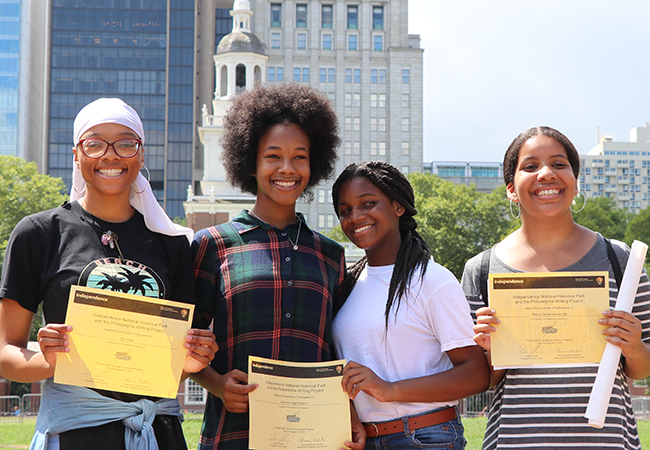
Q: PhilWP offers an array of programs beyond those we’ve mentioned, including several that work directly with Philadelphia students. What are some highlights of your student programming?
DW: In collaboration with Independence National Historical Park, we host a two-week summer camp called Project Write every year for high school students. Our teacher consultants facilitate the camp with park rangers, and they use history and architecture as inspiration for creative writing. Many of the participants later come to campus during the school year for a program called Friday Night Writes, where they can refine pieces to submit to the national Scholastic Art and Writing Awards. I’m very proud that PhilWP is the regional affiliate for the Scholastic Awards. Every year we receive over 2,000 pieces of student work, and the number of Penn GSE students, staff members, alumni, and PhilWP teacher consultants who volunteer to read the submissions in the local blind judging process is incredible. It’s a way that the University and the city come together to make the students feel proud of themselves as writers. This year a student from Cristo Rey Philadelphia High School will be celebrated at Carnegie Hall as a winner of one of the highest regional honors, the American Voices Medal, awarded by a panel in New York City.
JB: Another program is the Journalism Summer Camp, offered to middle and high school students through the Philly School Media Network, a partnership between PhilWP, The School District of Philadelphia, and the Philadelphia Public School Notebook. The program provides a way for young people to explore journalism in and outside of school and have their work go to a broader audience, which is important given that school newspapers and journalism classes have been casualties of budget cuts in most Philadelphia schools.
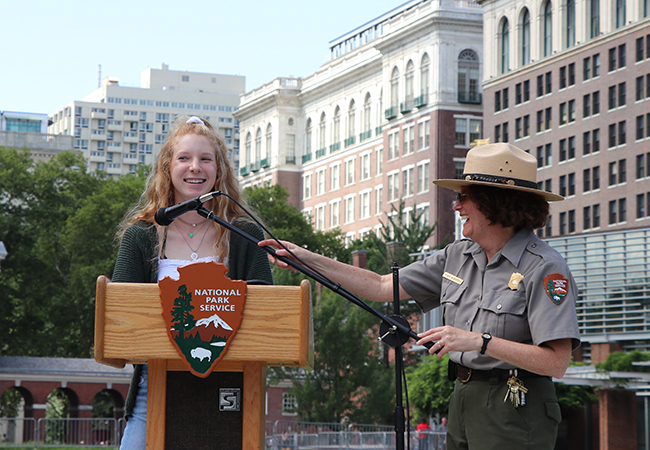
Q: Why is writing such a powerful part of learning?
JB: If you want good readers, you need to have good writers. Writing is an active way of learning and making meaning across subject areas. It helps us think critically and communicate to various audiences. At NWP, our focus is on preparing young people to succeed as writers, learners, leaders, and citizens. We envision a future in which every person is an accomplished writer, engaged learner, and an active participant in our interconnected world.
Q: Tell me about a moment that brought home the meaning of PhilWP’s work.
DW: We brought a filmmaker into a school to capture some of our work for a video. There was this first-grade girl who said, “I’ve never been on camera before sharing my work.” When she read her piece, she wasn’t intimidated at all. It was just the most beautiful thing. A little boy in kindergarten described his story to us, and he was just so animated—his hands were moving, and he was really excited. I think that’s the power of what we’re doing. We’re getting kids excited about learning, confident in their capabilities, and really passionate about their work.
Visit https://philwp.gse.upenn.edu/ to learn more about PhilWP.
This article originally appeared in the Spring 2019 issue of The Penn GSE Magazine.

